Edward Sapir Quotes & Sayings (Page 3)
Edward Sapir quotes and sayings page 3 (scientist). Here's quote # 21 through 30 out of the 32 we have.
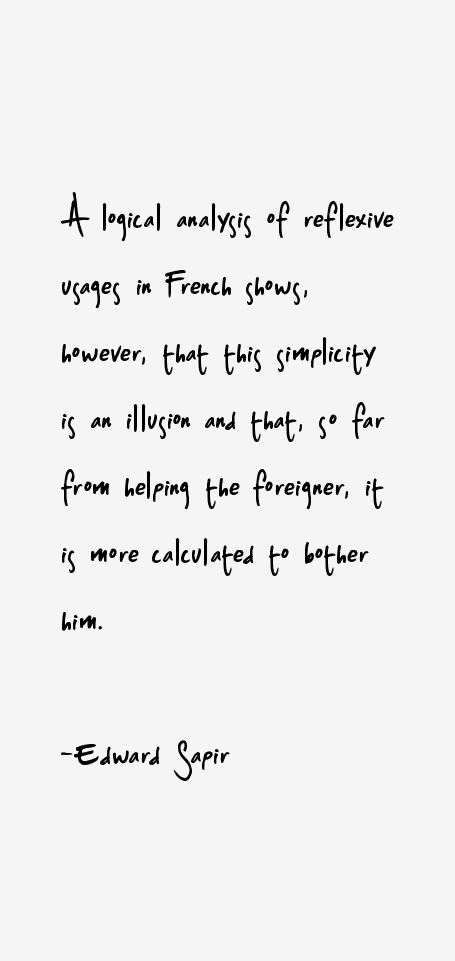
“A logical analysis of reflexive usages in French shows, however, that this simplicity is an illusion and that, so far from helping the foreigner, it is more calculated to bother him.”
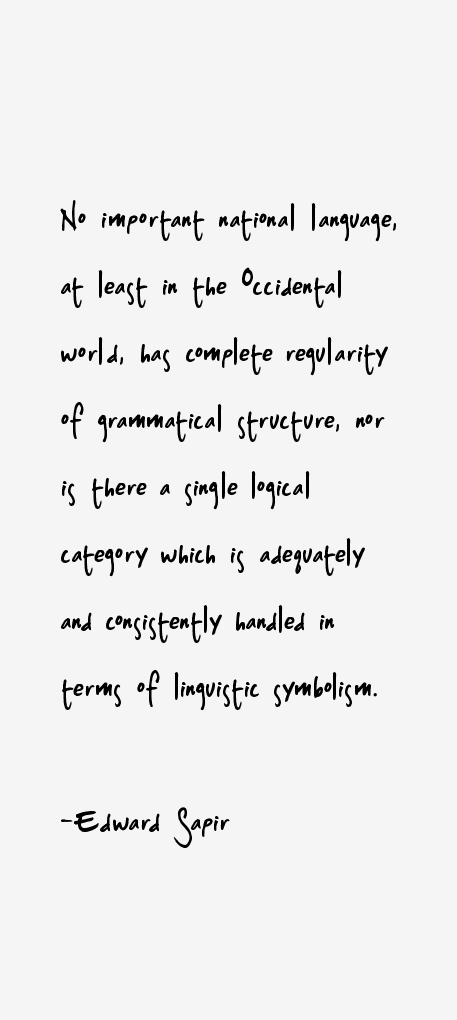
“No important national language, at least in the Occidental world, has complete regularity of grammatical structure, nor is there a single logical category which is adequately and consistently handled in terms of linguistic symbolism.”

“We see and hear and otherwise experience very largely as we do because the language habits of our community predispose certain choices of interpretation.”

“French and German illustrate the misleading character of apparent grammatical simplicity just as well.”
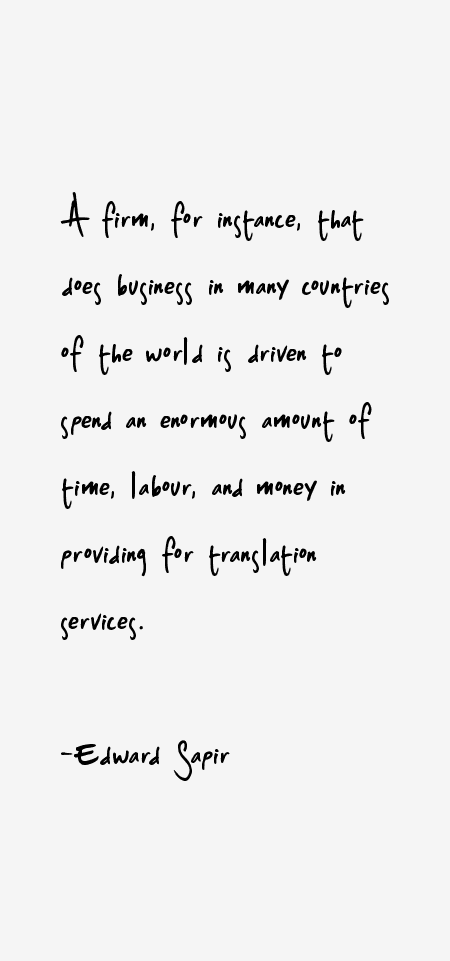
“A firm, for instance, that does business in many countries of the world is driven to spend an enormous amount of time, labour, and money in providing for translation services.”

“It is no secret that the fruits of language study are in no sort of relation to the labour spent on teaching and learning them.”

“The attitude of independence toward a constructed language which all national speakers must adopt is really a great advantage, because it tends to make man see himself as the master of language instead of its obedient servant.”
“Both French and Latin are involved with nationalistic and religious implications which could not be entirely shaken off, and so, while they seemed for a long time to have solved the international language problem up to a certain point, they did not really do so in spirit.”
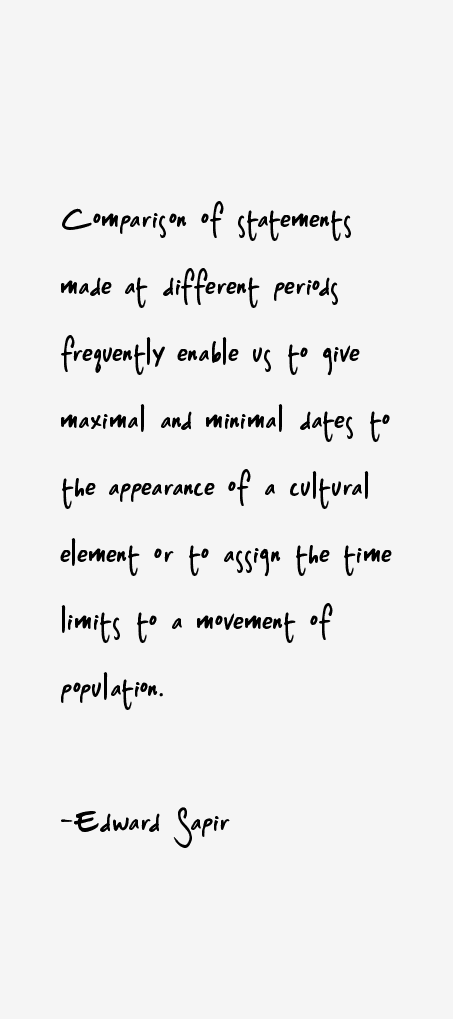
“Comparison of statements made at different periods frequently enable us to give maximal and minimal dates to the appearance of a cultural element or to assign the time limits to a movement of population.”
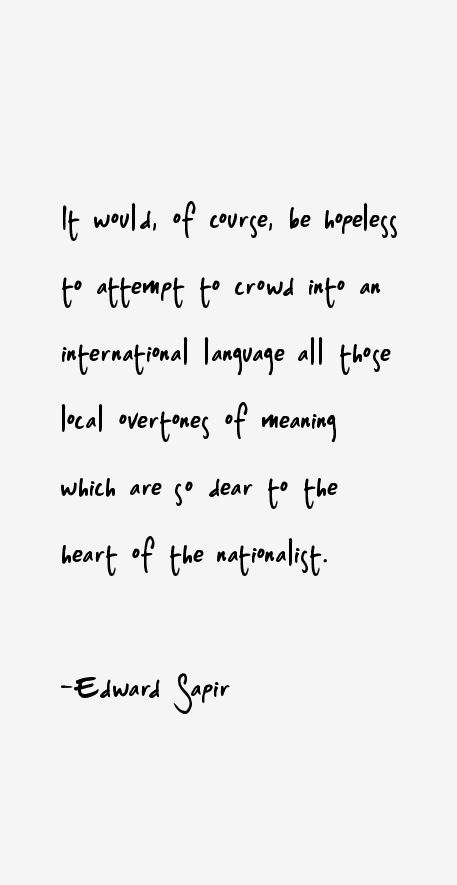
“It would, of course, be hopeless to attempt to crowd into an international language all those local overtones of meaning which are so dear to the heart of the nationalist.”
Edward Sapir Quotes Rating
No Ratings Yet
Leave A Comment
























